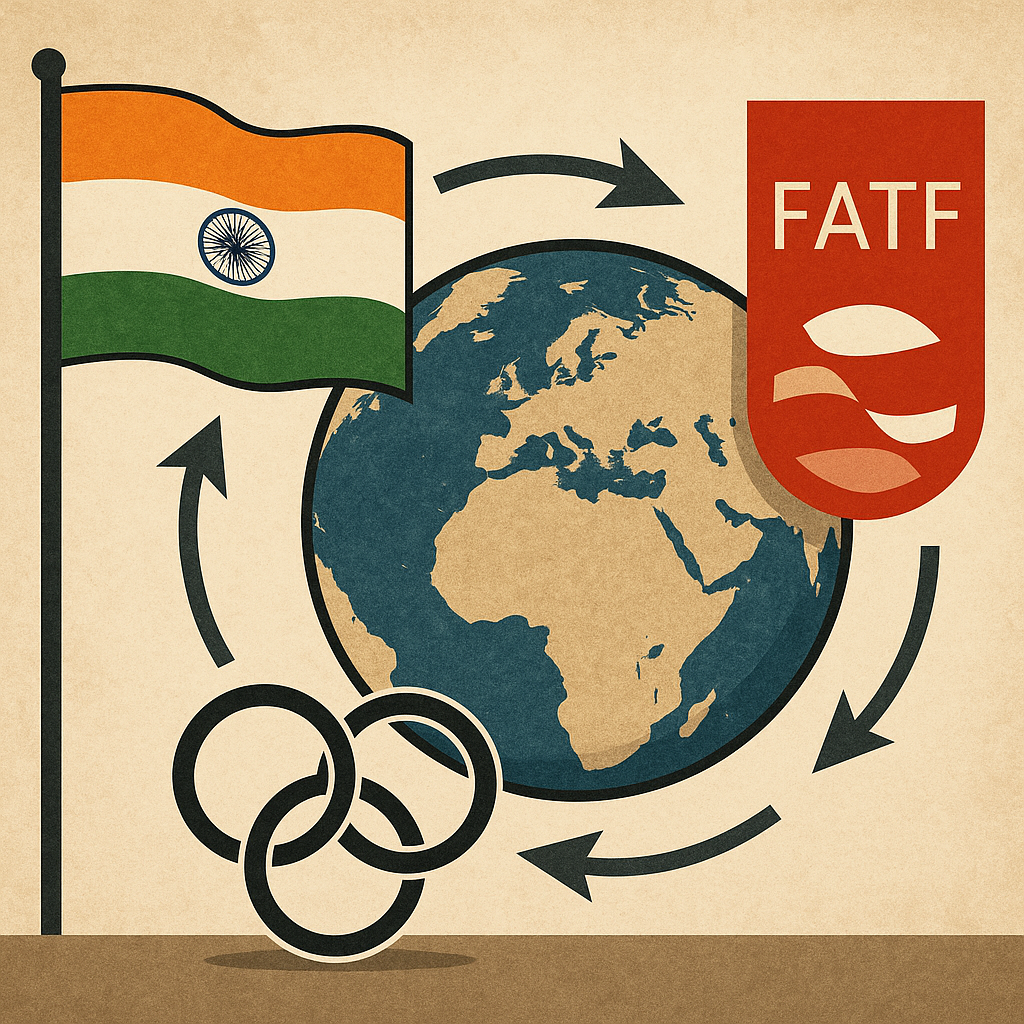Indian bid to influence International Organizations: The Case of FATF

India’s diplomatic outreach and influence over global institutions like FATF remain under scrutiny amid accusations of politicization.
After shamelessly violating the territorial integrity and sovereignty of Pakistan while attacking civilians, and destroying mosques via Operation Sindoor, India has launched a fresh disinformation campaign against Pakistan aimed to discredit, malign and tarnish its international reputation. In the Indian playbook, this is not a new move; EU Dis-info lab published a report: Indian chronicles uncovering a systemic network of fake media outlets, NGO’s and thinks tanks running across 65 countries.
Building on its legacy of spreading disinformation; In a latest move, Indian media outlets are highlighting that in 2020, Indian authorities reportedly seized a dual use item: Autoclave, from a Pakistani bound merchant vessel having a Chinese origin. Indian authorities deemed subjectively that this item was dual use and could be deployed to process high energy materials, for insulation and chemical coating of various missiles components.
Indian media outlets have relied upon the latest report published by FATF, “Complex Proliferation Financing and Sanctions Evasion Schemes”, in which this incidence is quoted as a case study. However, this report relies on the Indian sources for explaining the case study. Considering India’s record of orchestrating disinformation campaigns, relying on Indian sources for substantiating case studies, fundamentally impacts the credibility of the report, as well as the institutions. FATF is an apolitical institution, and its functioning must not reflect any biases and must not be influenced by mala-fide intent.
Moving forward, this writing will analyze the official positions of Pakistan and China on this incident to develop a well informed and factually correct narrative. Secondly, Pakistan’s compliance with the FATF action plans will be discussed briefly to substantiate its adherence with the guidelines. Lastly, mandate of FATF will be re-examined for dealing with the issues of proliferation financing.
Pakistan’s Foreign Ministry categorically denied dual use of the item reported by Indian customs and clarified that it did not have any applications in missile systems. The official statement elaborated that it was a heat treatment furnace casing system having multiple industrial implications. Furthermore, Foreign Ministry further clarified that at any stage of the shipment, no mis-declaration was made to conceal any information. As per media reports, India detained Chinese merchant vessel MV Da Cui Yun on Feb 3, at Deendayal Port, formerly known as Kandla Port.
However, the ship was later cleared to proceed to Karachi port on Feb 20. The incident raises a serious question: If the ship allegedly contained dual use item, why was it allowed to proceed? There can be two possible contingencies. Firstly, the ship did not contain any such dual use item. Secondly, Indian authorities intentionally declared a heat treatment furnace as dual use autoclave, and after a strong rebuttal by Ministry of Foreign Affairs (MOFA) Pakistan, Indian authorities had no chance but to clear the vessel.
Chinese Foreign Ministry spokesperson, Lijian Zhao also had dismissed the Indian assertion and clarified that no export control laws were violated. He further contended that this item was not part of the dual use items under any of the non-proliferation and export control regimes.
After comprehensively analyzing official positions of Pakistan (importer) and China (exporter); it is of great concern for the credibility of FATF for including a case study without relying on credible sources, and cross-checking the facts; thereby presenting a half-baked and factually incorrect substance.
FATF derives its mandate of implementing Targeted Financial Sanctions (TFS) from UNSCR (1718) on North Korea and UNSCR (2231) on Iran. The two resolutions have provisions for implementing Targeted Financial Sanctions (TFS) related to proliferation of Weapons of Mass Destruction (WMD). Furthermore, FATF’s Recommendation 7 requires countries to implement TFS established under relevant UNSCRs. Considering the two contingencies described above, Prima-facie, it falls outside the ambit of FATF proliferation financing regulation mechanisms to cite a lawful shipment between two countries as a case study for evading proliferation financing regulations.
Asia Pacific Group’s Mutual Evaluation Report (MER) (Second follow up) published in 2021 highlighted the fact that Pakistan was found Largely Compliant (LC) on Recommendation 7 pertaining to the proliferation financing. This aspect further reiterates the fact that Pakistan made the exit from the FATF’s grey list, after comprehensively addressing all the technical and regulatory imperatives for effectively addressing issues of terror financing, proliferation financing and money laundering.
Furthermore, SECDIV (Strategic Export Control Division) Pakistan has developed guidelines on proliferation financing, focusing on preventing the financing of weapons of mass destruction (WMD) and related materials. Building on the effective approaches of risk assessment and mitigation, these guidelines aim to cover all possible phases of fund collection, dissemination and procurement. These guidelines have explicitly defined red-flags and list of dual use items for strictly regulating proliferation financing.
FATF as a global watchdog for curtailing money laundering, terror financing, and proliferation financing, must not by any means should impair the national capabilities of states for dealing with such issues; rather FATF must appreciate and highlight the good practices of developing countries in combating financing of prescribed individuals and entities



